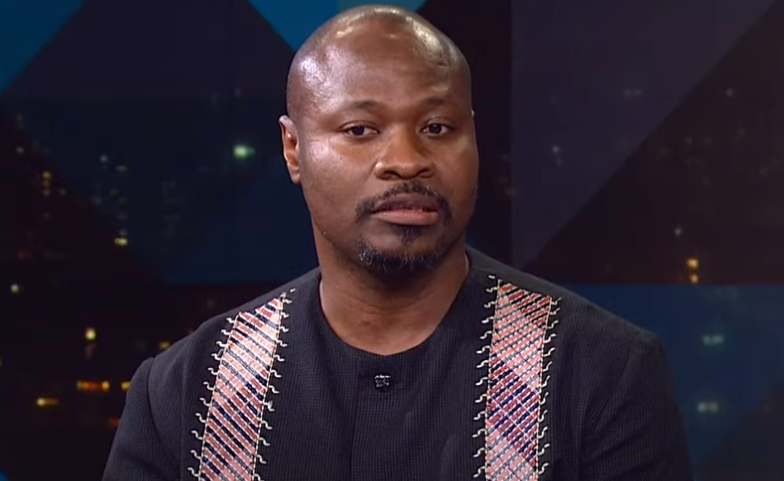Gambiaj.com – (Dakar, Senegal) – In a bold and introspective follow-up to his recent public call for greater transparency and probity in the ruling PASTEF coalition, Member of Parliament Guy Marius Sagna has once again stirred national debate by exposing entrenched practices of political clientelism within his own party.
In a new op-ed titled “Three Years Fighting Against Sukëru Koor,” published on Sunday, Sagna revisits his internal resistance to what he describes as the continuation of “former regime” traditions, despite the party’s rise to power on a platform of rupture and renewal.
The term “Sukëru Koor” – literally translated as “Ramadan sugar” – refers in this context to the informal distribution of money to parliamentarians during religious festivities, often justified as social support but widely seen as a form of political patronage.
Sagna argues that this practice, regardless of how it is framed, mirrors the very systems of redistribution and clientelism that the PASTEF party once promised to dismantle.
A Battle Within
Sagna reveals that he has been fighting this internal battle for nearly three years, dating back to the early days of the Yewwi Askan Wi parliamentary group, before the party’s historic 2024 presidential victory.
“I defended the idea that we could not go to a presidential election… while adopting some of the parasitic practices of the old regimes,” he wrote, warning that failure to break from these traditions would undercut the party’s promise of transformative change.
Despite raising objections and calling for internal deliberations on MPs’ perks and privileges, Sagna says his efforts were consistently marginalized.
“Everything has been done to prevent internal discussions,” he laments, suggesting a reluctance within the parliamentary group to confront uncomfortable truths about how political power is wielded – even under a reformist banner.
In a particularly striking passage, he recounts how in March 2025 – just ten days into Ramadan – deputies were discreetly informed that envelopes of 100,000 FCFA would be distributed as “support.” Whether deputies accepted the money or not, he says, is beside the point.
“Baptizing Sukëru Koor modestly as ‘support’ does not change the reality,” he insists.
Structural Critique and a Glimpse of Optimism
Sagna situates this issue within a broader critique of Senegalese political culture, arguing that such redistributive strategies are not merely ethical lapses but structural impediments to national development and political credibility.
The recurring logic – that deputies need public funds to maintain a political clientele – reproduces a system where state resources serve narrow electoral interests rather than collective upliftment.
“Some have diverted money or created Sukëru Koor for this,” he writes. “I want our party, our project, our government, our parliamentary group… to remain credible so that the populations are more easily mobilized in the struggle for the exit from neocolonialism [and] underdevelopment.”
In this, Sagna links political ethics directly to Senegal’s developmental aspirations – a powerful argument aimed not only at party comrades but at the broader citizenry.
The reaction to Sagna’s earlier critiques has been polarized. While some hailed his courage in calling out internal inconsistencies, others saw his move as potentially destabilizing or self-serving. Yet Sagna remains undeterred.
He ends his essay on a cautiously optimistic note, declaring victory in the battle against Sukëru Koor: “I am sure that in 2026 we will no longer talk about ‘Sukëru Koor’ or support.” He also reaffirms his pride in belonging to a party that, for all its contradictions, “imposes the debates” and forces even its critics to reckon with its ideological influence.
But he is also clear: Sukëru Koor is but one example of “retrograde budgetary practices” that need dismantling.
Some, he notes, have already been removed; others remain. His challenge to the party and its supporters is to not only lead with slogans of rupture but to embody those values in the difficult, often uncomfortable, internal work of reform.
A Test of PASTEF’s Political Maturity
Sagna’s op-ed thus serves as both a self-critique and a litmus test of PASTEF’s political maturity. Can a party forged in the fires of opposition – with promises of rupture, transparency, and justice – adapt its internal culture to match its public ideals? And can dissent within the ruling party be tolerated, even encouraged, as a necessary engine of democratic accountability?
As the 2026 local elections draw closer, how PASTEF responds to Sagna’s internal calls may shape not only its public image but also its legacy as a force of change – or as a new face of an old system.










